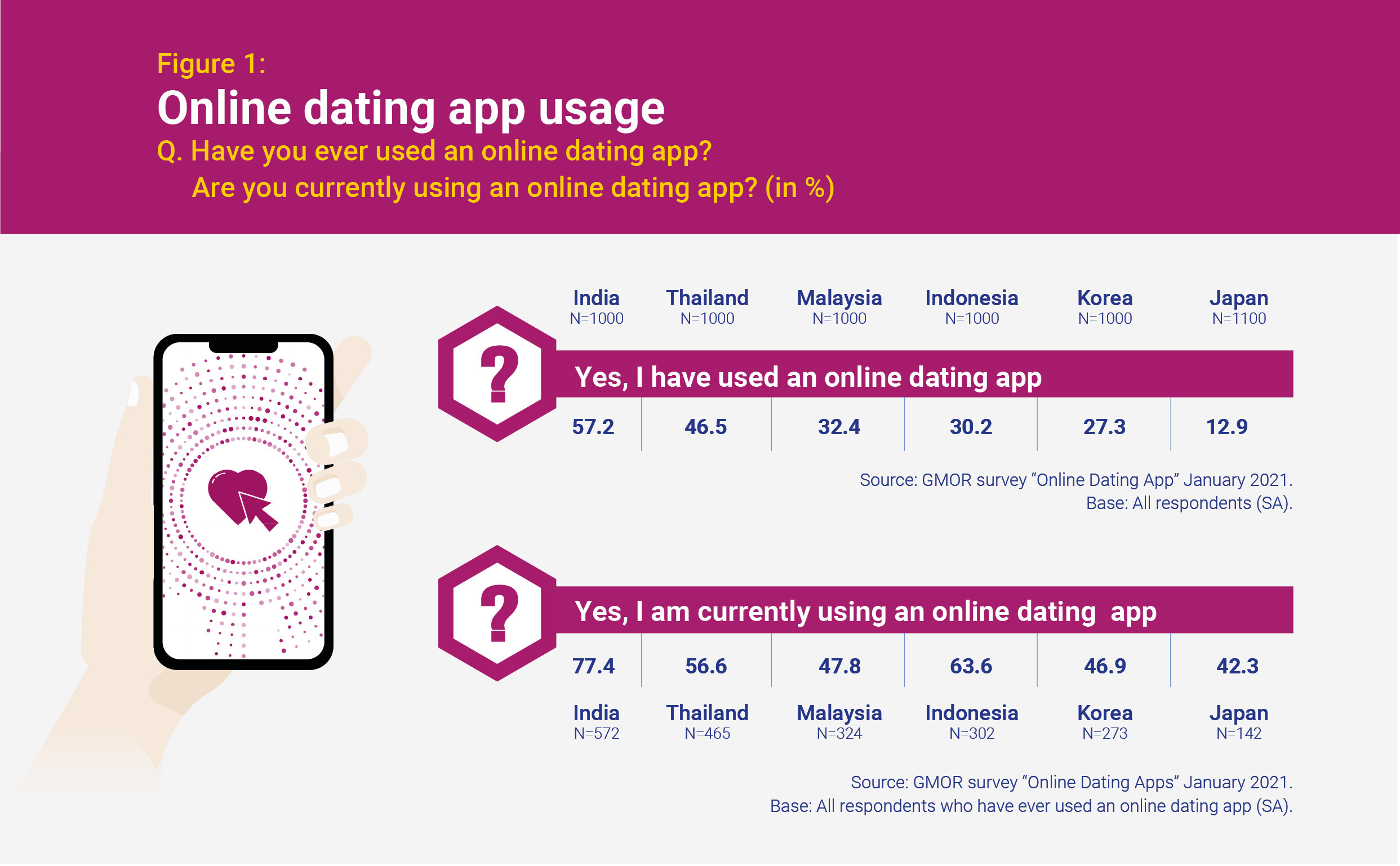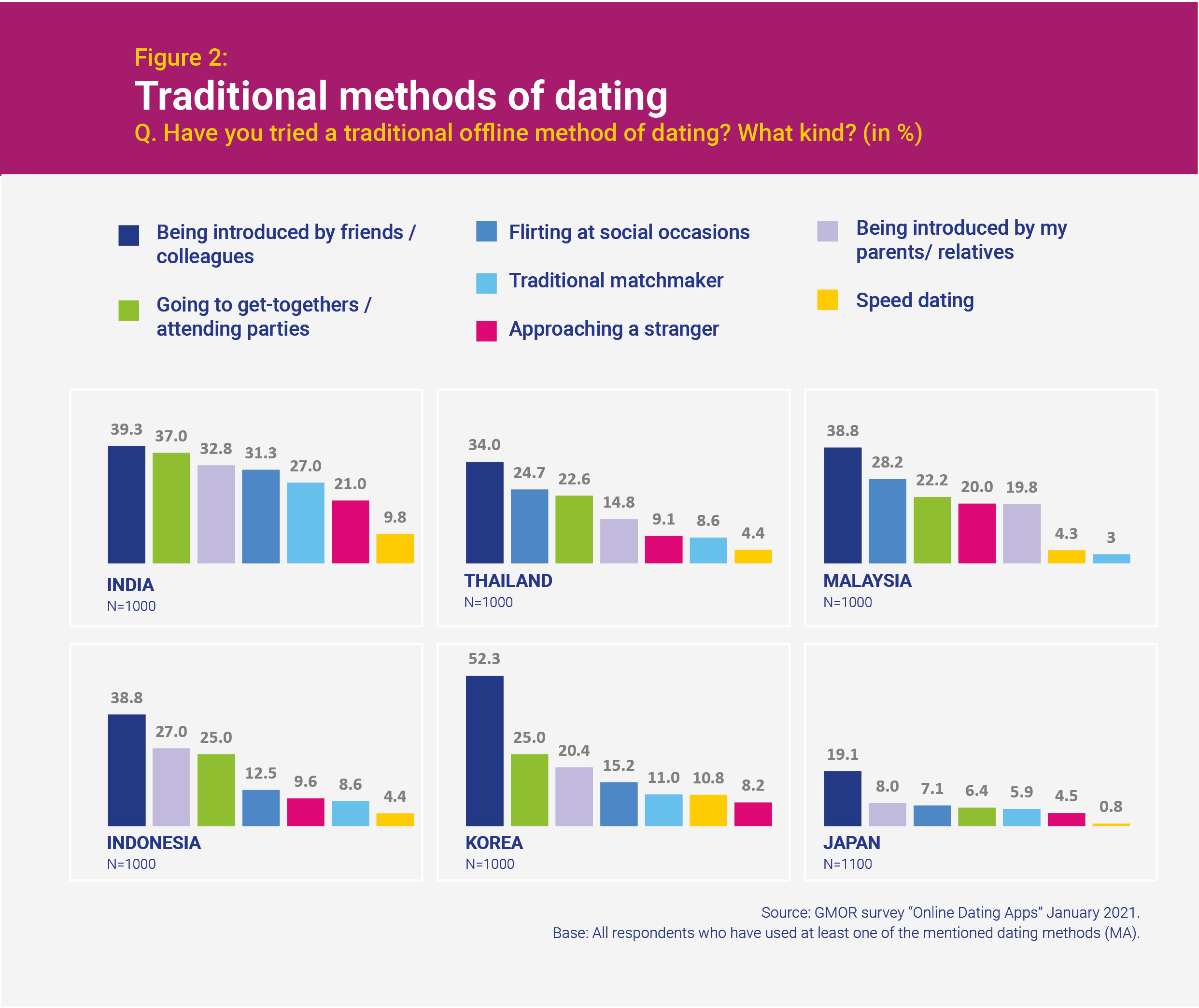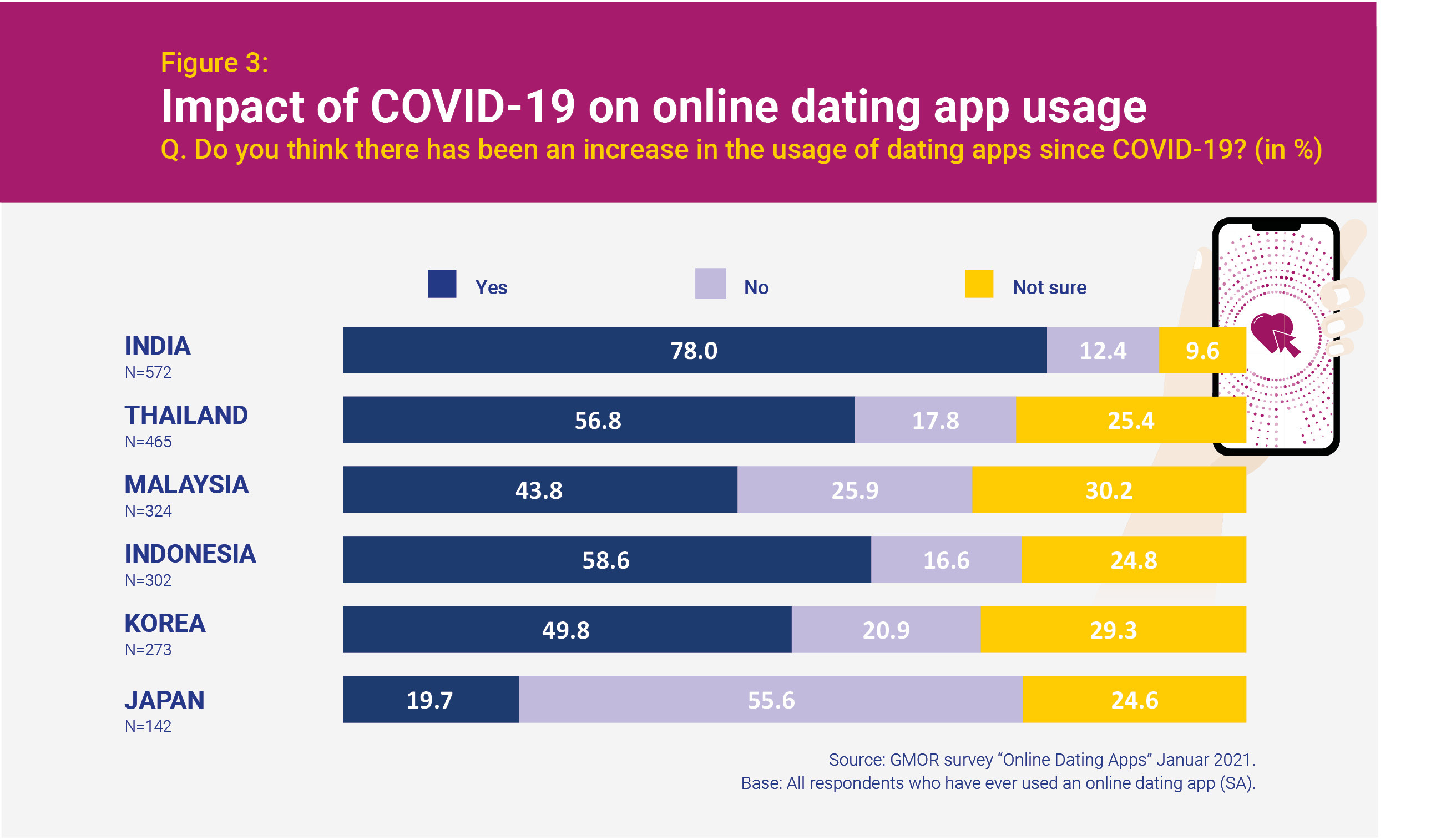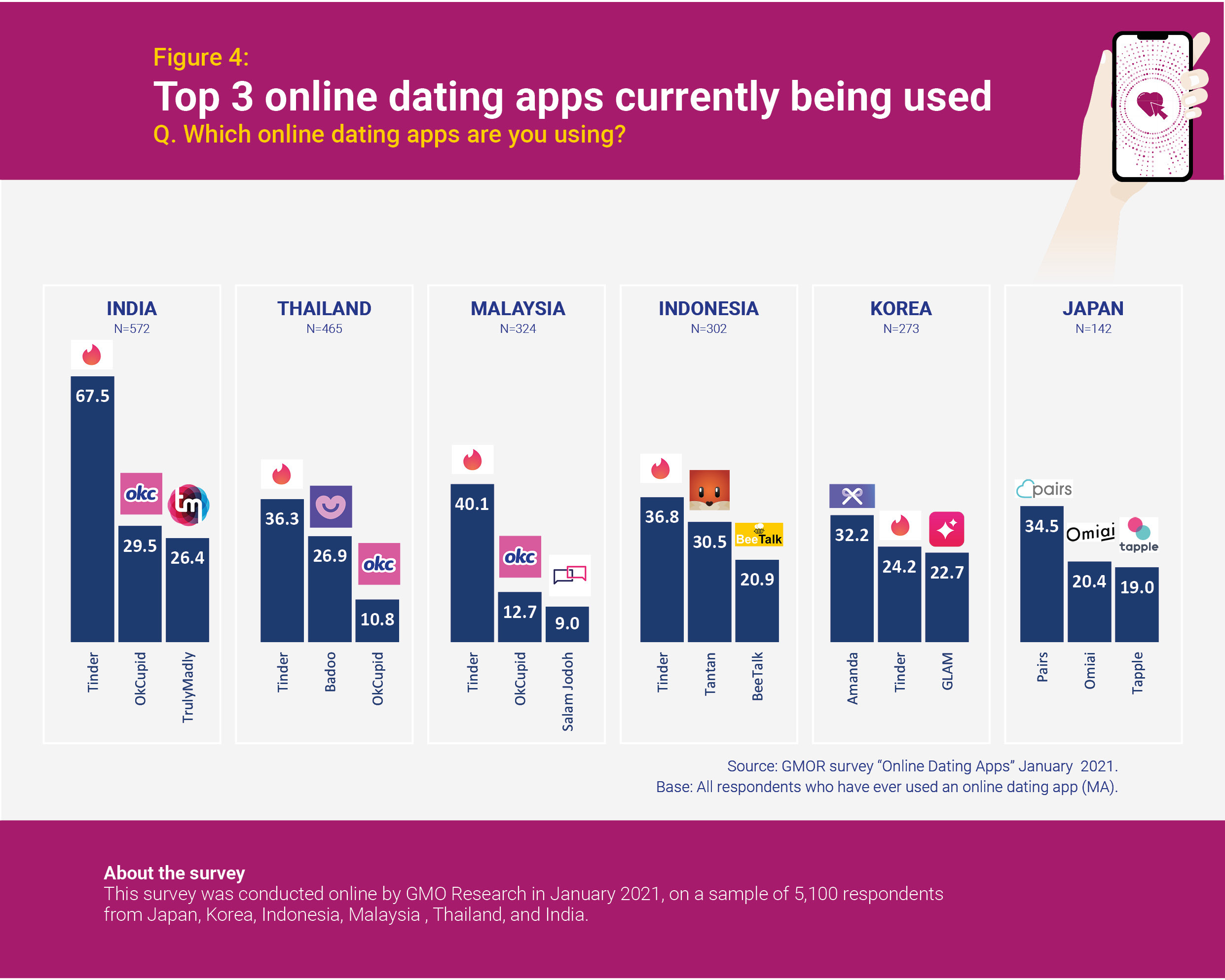Online Dating in Asia
2021/02/26

Photo by Pratik Gupta on Unsplash
Online Dating in Asia
The COVID-19 pandemic, with its lockdowns and border closures, has created many a lonely soul. This is perhaps the main reason why online dating has seen a meteoric rise since the coronavirus first hit. But online dating apps are not new, and they are just one of the many ways in which technology has disrupted our way of life. Global dating app revenue has increased by 50% over the last four years, reaching $3.08 billion in 2020. The global dating app market is forecast to surpass $8.4 billion by 2024.
In Asia, like the rest of the world, online dating apps have seen an increase in usage during the pandemic. In Singapore, during the circuit-breaker lockdown, users of dating app Paktor spent 10 times longer on the app than they did before the pandemic. In China, mobile dating app Tantan reported that average time spent on the app increased by more than 30% during the pandemic compared with average usage before COVID-19.
Being a diverse region, Asia is a melting pot of different cultures and ethnicities, and this can manifest in widely different consumer behaviours from one city to the next. To deep-dive into this diversity, GMO Research conducted a survey into online dating in six different countries across Asia: Japan, Korea, India, Malaysia, Indonesia, and Thailand. This article highlights key trends and consumer preferences in these different countries, and provides cross-country comparisons to give you detailed insights into consumer behaviour in the region.
Asia is a predominantly conservative region, and in many countries the casual approach to dating through meeting up with complete strangers is frowned upon. In fact, the GMO survey has shown that more people still prefer offline dating methods to online dating apps. The most popular way for people to meet potential partners is through an introduction by friends or colleagues. This is consistent across all the countries surveyed.
Despite pressure from the more conservative societies, dating apps have still managed to find their way into Asia and are growing at a steady pace. According to the survey, online dating apps have had the highest adoption rate in India at 57.2%, followed by Thailand at 46.5% and Malaysia at 32.4%.


Most respondents from the survey agree that there has been an increase in the usage of online dating apps since the outbreak of COVID-19. In India, as many as 78% of respondents think that there has been increased usage of online dating apps since the start of the pandemic. This is followed by Indonesia and Thailand, where slightly more than half (58.6% and 56.8% respectively) of respondents think there has been increased usage.
With the exception of Japan, there has been a higher adoption rate of online dating apps among male users. This disparity is most noticeable in India, where up to 71.3% of dating app users are male. There is also a significantly higher proportion of male users in Thailand at 66.7%. In Indonesia, 62.3% of dating app users are male, the third highest in the region. Apps in Korea and Malaysia have more balanced gender splits, with male users at 58.2% and 54.9% respectively.

Findings from this survey have cast a spotlight on the usage of online dating apps by married people in these different countries. At 77.9%, India has the highest proportion of married people who are currently engaged in online dating. Next is Indonesia, where 60.1% of married people are currently using an online dating app. The third highest is Thailand, with 53.7% of married people engaged in online dating. Korea is next at 51.6%, and Malaysia and Japan have the lowest proportions of married people engaged in online dating, at 38.4% and 35.4% respectively.
The GMO survey has highlighted the most popular apps preferred by consumers across the different countries. With the exception of Japan and Korea, which have particularly distinct and unique cultures, Tinder has emerged as the most popular app in all the countries surveyed. The highest usage rate for Tinder can be found in India (67.5%), followed by Malaysia (40.1%) and Indonesia (36.8%). Tinder is ranked second in Korea, behind popular Korean dating app Amanda, which was created by tech start-up NextMatch. In Japan, the top three most popular apps are Pairs, Omiai, and Tapple.

During the pandemic, many people have become more isolated, and as a result more people are seeking connections virtually, for both companionship and emotional support, as a coping mechanism for loneliness. In fact, there is definitely an upward trend in relationships starting online and going forward from there. This could lead to more serious relationships and even marriages as online dating goes mainstream.





